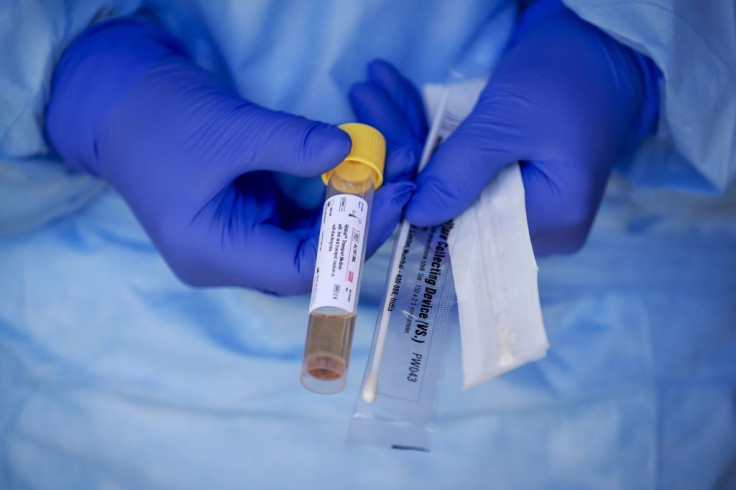US Doctors Are Hoarding Coronavirus Treatment Drugs For Their Families, Pharmacy Boards Reveal

KEY POINTS
- Pharmacists are sharing stories about doctors overprescribing chloroquine and hydroxychloroquine to themselves and to family members
- These drugs have been lauded by President Trump as proven cure for COVID-19
- States have already imposed restrictions to stop this hoarding
The American Medical Association (AMA) is roundly denouncing doctors in some states for inappropriately and unethically writing huge prescriptions to themselves and their families for drugs that might be capable of curing COVID-19.
The most popular drugs being hoarded by these doctors are chloroquine and hydroxychloroquine (commonly used to treat malaria, lupus, rheumatoid arthritis and other conditions), and the antibiotic azithromycin. Chloroquine and hydroxychloroquine became notorious after a man from Arizona died after ingesting it. This man's wife, who also took the drug and wound-up in serious condition, later said they decided to take chloroquine after president Donald Trump touted it as a cure for COVID-19.
Neither chloroquine nor hydroxychloroquine have been approved by the U.S. Food and Drug Administration (FDA) as treatments for COVID-19. The prescriptions are being written by doctors for large quantities with refills, the New York Times reported.
The unethical practice came to light after pharmacists shared stories about it on social media. The stories caught the attention of medical societies and local health authorities.
“The A.M.A. is calling for a stop to any inappropriate prescribing and ordering of medications, including chloroquine or hydroxychloroquine, and appealing to physicians and all health care professionals to follow the highest standards of professionalism and ethics,” said AMA president Dr. Patrice Harris.
Dr. Harris said the country’s healthcare professionals “continue to demonstrate remarkable leadership every day,” and can look to the organization’s code of medical ethics for guidance.
The first restrictions on this hoarding were imposed in Idaho. The board there last week imposed a temporary rule barring pharmacies from dispensing chloroquine and hydroxychloroquine unless the prescription includes a written diagnosis of a condition the drugs have been proven to treat, the Times noted. The rule also limits prescriptions to a 14-day supply unless a patient has previously taken the medication.
Texas adopted a similar rule but included another malaria drug (mefloquine), and the antibiotic azithromycin, commonly known by its brand name, Zithromax Z-Pak.
Carmen Catizone, executive director of the National Association of Boards of Pharmacy, said state boards across the U.S. are “trying to stop the hoarding and inappropriate prescribing, but balancing what patients need.”
Jay Campbell, executive director of the North Carolina Board of Pharmacy, said medical boards and associations have to get involved as well to curb the behavior of prescribers.
“This is a real issue and it is not some product of a few isolated bad apples,” he noted.
© Copyright IBTimes 2024. All rights reserved.





















